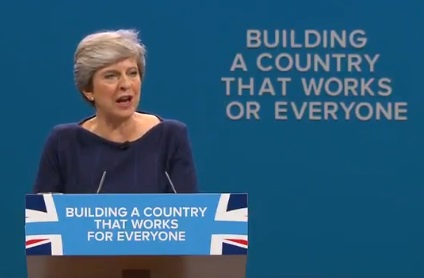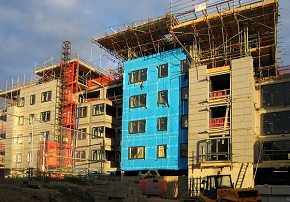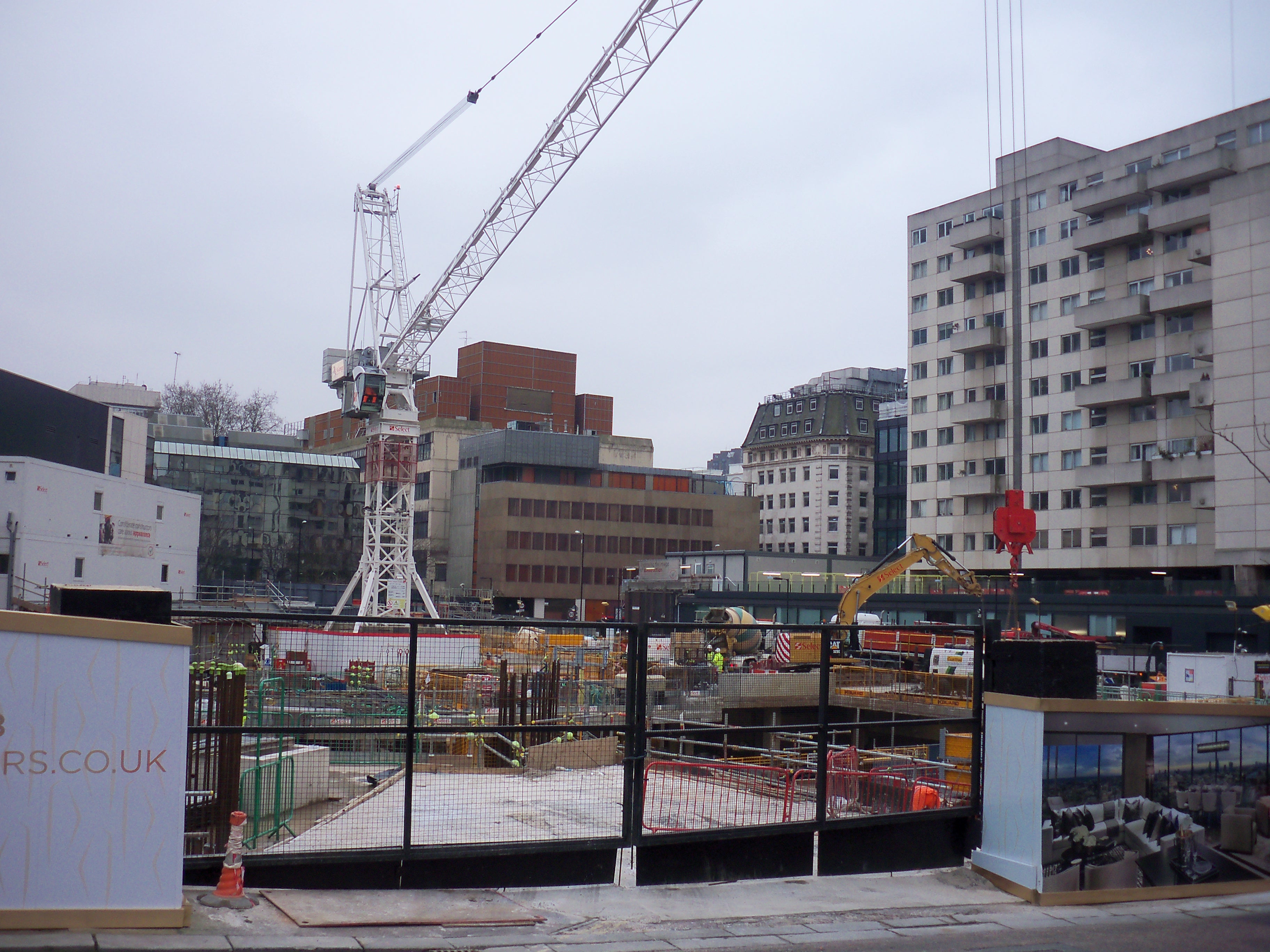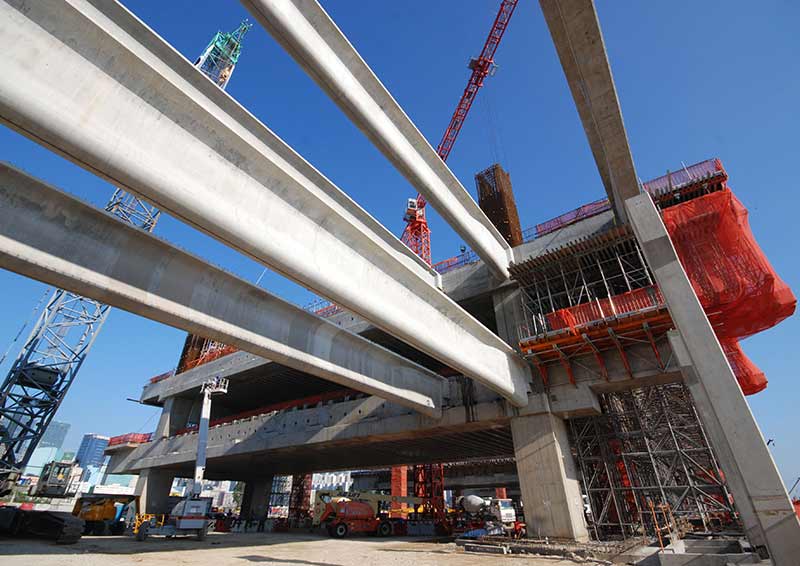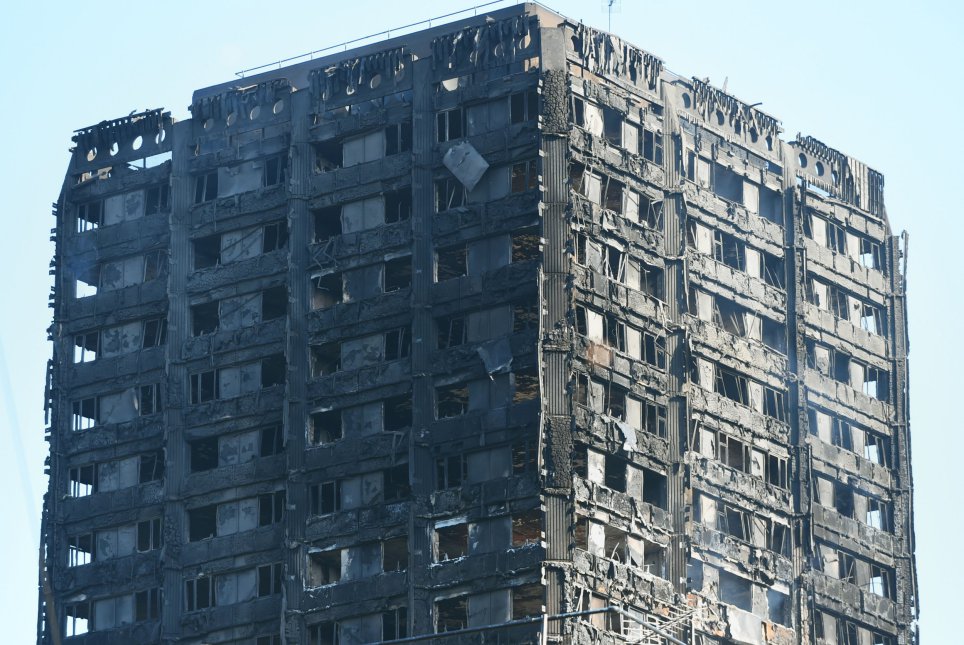Main author
Michael BrooksInterview with David Orr, NHF
The National Housing Federation (NHF) is a trade association for member social housing providers in England. It represents the work of member housing associations and campaigns on a range of housing and social policy issues.
David Orr has been the Chief Executive of NHF since 2005. Designing Buildings Wiki spoke with David about the evolving political consensus around social housing, his controversial decision to support the extension of Right to Buy to housing associations, Grenfell Tower, and much more...
| Designing Buildings Wiki (DBW): You've been Chief Executive of NHF for 12 years; what would you say is the most significant change you've seen with regard to housing over that time? |
David Orr (DO):
The big problem we’ve had is that there’s been a long term understanding that we’re not building enough homes and no real political impetus to do anything about it. There’s now a settled popular view that we need to be building a quarter of a million homes or more a year. The last time we did that was in 1977.
In a way, what has defined that 12 years is the constant slog of trying to get people to understand what the consequences of not building would be and are. That’s pretty much been the core of what I and this organisation have been doing – arguing that we need new homes across the whole market which includes new homes that are genuinely affordable for people on low incomes.
Certainly, since 2010 there’s not been a sufficient focus on that, there’s been far too little money. The Conservative party conference was actually a significant moment – not just the additional £2bn, in the grand scheme of things it isn’t going to change the housing market fundamentally – in that a Conservative government said they were going to put in that additional funding for social rent. That is a significant change in tone, in tactic, and in a way it was a statement of intent.
| DBW: The political consensus seems to be that housing is the foremost issue of concern. Is there anything you've heard from the party conference season that makes you optimistic that real change might be ahead? |
DO:
There’s always a danger that it’s all a bit ephemeral. The thing I’m really optimistic about is the opportunity for housing associations (HAs) to carry on from where they are already making a significant difference and do a lot more.
The business model that the biggest HAs now have means that for the first time in our modern history, perhaps ever, we have large-scale players building at significant levels, some of them are talking about 8,000-10,000 homes a year.
Where the model is mixed tenure they can develop more quickly, there’s more flexibility, and because they’re not making profits to pay shareholder dividends but to reinvest in providing the core social purpose, it’s a much more flexible model. If we have a government that now wants to think strategically about how it invests in and supports that work, then there’s real cause for optimism.
| DBW: Thatcher's 'property owning democracy' increasingly seems like a utopian past to those under-40s and Generation Rent. Do you think the free market has served housing well in this country or would you support more state intervention? |
DO:
No, but it hasn’t anywhere. There’s no country in the world that has a good, balanced housing market that provides high quality housing for everyone without some state intervention. We’ve got a distorted view here about what successful economies look like.
The place in Europe with the highest levels of owner-occupation are places like Bulgaria, because at the end of communism, the state gifted the properties to everyone, they didn’t do anything about how individuals would manage district heating systems or communal repairs.
If you look at the places where the housing market functions best, which tend to be in western European economies, there’s a much greater understanding that rent and owner-occupation are both critical to a well-functioning market and, when it is needed, both are supported with some degree of state intervention. The free market never provides for everyone in housing.
| DBW: What made you decide that your stance in support of the government extending Right to Buy to housing associations was the correct one, and are you pleased now with the government's U-turn in terms of further spending commitments? |
DO:
When the Conservatives announced, in their 2015 manifesto, that they were going to extend the Right to Buy to HA tenants, I had seen it coming and tried to stop them doing it.
At the time of the manifesto, I said that a statutory right to buy imposed on HAs with discount was a terrible idea and would be catastrophic. I actually thought that it was pretty close to the state sequestering the assets of private organisations.
When they got to the Queen’s Speech, where it was given huge prominence, there were a number of options. One was to fight, almost certainly to lose, have a statutory right to buy imposed, and have no relationship, or a hostile one, with a government that was already not hugely favourably disposed towards HAs.
The second option was to fight and win, which in our judgement was highly unlikely for all kinds of reasons, and then still have a hostile relationship with the government. The other option was to do something different.
The thing we did differently was to say that we understand there are many tenants of HAs who would like the opportunity to have an equity share on an asset or buy the property. We’re happy to do a deal that enables that to happen, but if the government wants a discount they will have to determine who is eligible for that discount and have to pay for it, and the government agreed to that.
At that point the deal looked worth doing. It meant that for any sales that happened we would be getting full market value and would be able to use that money to rebuild.
In retrospect, I’m even more convinced it was the right thing to do – we’ve not had any down side from it yet. Even if it does happen (and there’s a big question mark over that), and there is proves to be a down side, we will be able to build new homes. But fundamentally, I think it changed the government’s perception of the NHF and the HA sector which has been extremely useful.
| DBW: At NHF's conference, you highlighted that social housing spending is at a record low and called for much more public spending on social housing. This was quite a bold statement to make, what made you believe that now was the right time to do so, and how high are your hopes that this call will be heeded by government moving forward? |
DO:
It wasn't the right time a couple of years ago because it had no chance of success. The early days of the Cameron/Osborne government defined the housing crisis entirely as a crisis of owner-occupation and were only interested in investment that delivered owner-occupation. In the 2010 comprehensive spending review, they had already cut investment in housing associations by two-thirds but wanted us to deliver the same number of homes.
If we'd tried to argue the case for more spending on social housing at that point we would just have been laughed at. I've always believed that state investment in affordable rented housing isn't just socially sensible, its economically rational, you get a huge amount of return from it, and I also think its good politics.
But the people in government didn't believe any of those things - they didn't like the social argument, they didn't believe the economic argument and they certainly didn't believe the political argument. "Why spend money on social rent and just create more Labour voters?", that was the quoted mindset at the the time.
But with the pretty catastrophic 2017 election for the Tories, and Grenfell, the circumstances had changed dramatically. It wasn't just politicians, the whole country was thinking - what's going on with social housing?
There hasn't been any new public investment in social rented housing for 7 years. Our judgement was that this was the right time to remind people of the importance of social rent and of government playing an active role in it.
And from that, the Prime Minister has announced an extra £2bn of new investment for social rent. But of course it's not nearly enough - estimated at only 5,000 new homes a year. But suppose we manage to get that up to 8 or 9,000 a year, that's 45,000 homes at social rent that will be lived in by families whose lived will be transformed by it.
If it's a one-off investment then we've lost the argument, this has to be the start of sustained future investment. More new homes at social rent will, in the long run, make all housing more affordable.
| DBW: In the 1998 Housing Act, housing associations were allowed to borrow and approach the City, and the rate of building went up dramatically. Would you like housing associations to be able to borrow against housing stock today? |
DO:
HAs don't have any huge problems with borrowing. The constraints are that there are often gearing covenants that are based on existing use value for social housing rather than market value, subject to tenancy or vacant possession.
So there is potential to secure more debt against existing properties and for some HAs to be able to do that would be helpful, it would expand what they'd be able to borrow. But I don't think this is a fundamental problem, we're at something like £80bn of private debt in the sector and growing.
I'd like to see more pension fund investment in the work that we do, and more properties built for market rent by HAs where the financing is coming from pension funds and other big institutions, because it is a good way of providing a patient index-linked return. That would make a real contribution to easing some of the pressures in the market, but we've not quite squared that circle yet.
| DBW: Are you encouraged by the progress being made in terms of offsite housebuilding? |
DO:
I'm encouraged, but on a scale of 1 to 10 I might be at about 2 or 3. I've been frustrated for a long time that the industry, building new homes, has invested almost nothing in R&D.
If you think back 30 years to what TVs looked like, or how we listened to music, or the car you had, all these have had transformational technologies applied to them. Housing hasn't, and I really struggle to understand why.
I think it's something to do with an inertia in the larger developers, because they only market the existing product to the public and they're not trying to bring new products into the market.
There is now a push for factory-built housing and we absolutely have to do it. This is a post-Brexit challenge; creating a new, high-skill environment where people are working in modern, bright, electronic factories building high-quality homes. If you were 18, does that sound like a better offer than sitting around a roof in February nailing planks?
| DBW: HAs have come under criticism in recent months in terms of quality and defects. What do you think lies behind these reports of low quality, and is there the risk that as efforts are intensified to meet demand for housing, quality and energy-efficiency will be compromised? |
DO:
I certainly hope not. I certainly hear of some HAs taking handover of buildings with a much higher level of latent defects than they've been used to. I don't think this is fundamentally a conditioning problem, or because HAs are commissioning poor quality, but sometimes the industry might be delivering poor quality.
There seems to be a growing view that there is a real problem with on-site inspection - employer's agents and design & build contractors are pricing so low that they're not there very much, to the extent that a lot of our members are saying for big developments that they are going back to having their own clerk of works on site. That feels to me like quite an important step.
One of the things about HAs is that they have a long-term vested interest in building quality and energy efficiency, because if a property is energy efficient, your tenants are more likely to be able to pay the rent. HAs do not want to be spending money in year 5 on repairs and maintenance. There is no gain for HAs in having poor quality or delivery. I'm not saying other builders have a gain, but if your model is build-sell-depart, you don't have the same long-term vested interest in it.
| DBW: Do you think that Grenfell will be the defining turning point for the industry that some have described it as? What would you like to see being the main lesson learnt in terms of social housing? |
DO:
Grenfell has to be the defining point at which things change, and it would be criminal if we did not ensure that. People can assert that it was a failure of governance or management or construction, but the truth is, we don't yet properly know, we need the public inquiry to tell us what actually happened.
It has reawakened a dormant conversation about whether as a nation we think its an obligation that we have a decent housing offer for everyone. Post-Grenfell, I think the answer has to be yes. Then there is the construction challenge, that if that is what we want to do, how do we do it? Answering that challenge is going to be difficult.
We have to reduce the potential for game-playing. People argue against doing 30% affordable homes and they use viability assessments. This is absurd. It creates a genuinely perverse incentive for the developer to pay more for the land so they can say 'we've had to pay more for the land, so we can't now afford to do the affordable housing'. If no planning consent was ever given without the affordable housing then the price of the land would drop.
| DBW: Things to look forward to for NHF in the near future? |
DO:
I'm genuinely excited about the potential that HAs have for taking what has already been a tremendous contribution - we house 10% of the population - and make that a really impressive future contribution.
We will provide good quality, new homes for out-right sale, for shared ownership, for market rent, for intermediate rent, for social rent, and that's what I find exciting.
[edit] Related articles on Designing Buildings Wiki
- Affordable housing.
- Architects for Social Housing - interview.
- Grenfell Tower fire.
- Housing associations.
- Interview with Andrew Carpenter, STA.
- Interview with Labour's Shadow Housing Minister.
- Interview with Melanie Leech.
- List of interviews.
- Peter Barber - interview.
- Right to buy extended to housing association tenants.
- Social housing.
Featured articles and news
A case study and a warning to would-be developers
Creating four dwellings... after half a century of doing this job, why, oh why, is it so difficult?
Reform of the fire engineering profession
Fire Engineers Advisory Panel: Authoritative Statement, reactions and next steps.
Restoration and renewal of the Palace of Westminster
A complex project of cultural significance from full decant to EMI, opportunities and a potential a way forward.
Apprenticeships and the responsibility we share
Perspectives from the CIOB President as National Apprentice Week comes to a close.
The first line of defence against rain, wind and snow.
Building Safety recap January, 2026
What we missed at the end of last year, and at the start of this...
National Apprenticeship Week 2026, 9-15 Feb
Shining a light on the positive impacts for businesses, their apprentices and the wider economy alike.
Applications and benefits of acoustic flooring
From commercial to retail.
From solid to sprung and ribbed to raised.
Strengthening industry collaboration in Hong Kong
Hong Kong Institute of Construction and The Chartered Institute of Building sign Memorandum of Understanding.
A detailed description from the experts at Cornish Lime.
IHBC planning for growth with corporate plan development
Grow with the Institute by volunteering and CP25 consultation.
Connecting ambition and action for designers and specifiers.
Electrical skills gap deepens as apprenticeship starts fall despite surging demand says ECA.
Built environment bodies deepen joint action on EDI
B.E.Inclusive initiative agree next phase of joint equity, diversity and inclusion (EDI) action plan.
Recognising culture as key to sustainable economic growth
Creative UK Provocation paper: Culture as Growth Infrastructure.








